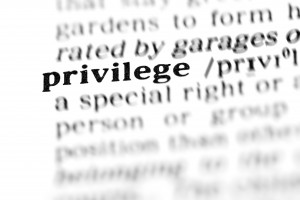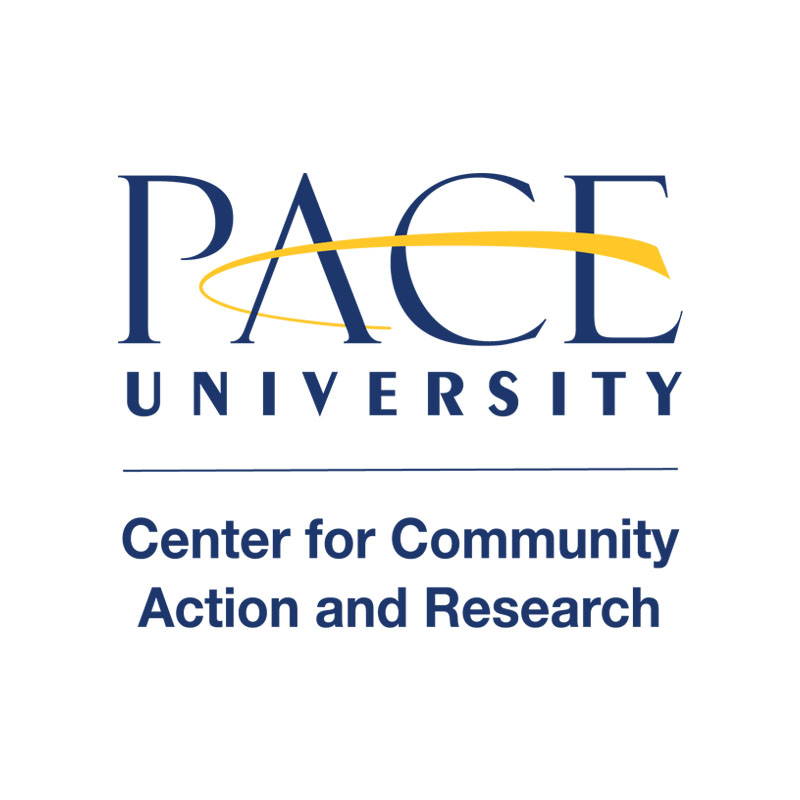February: A Month to Recognize Privilege
 This month at the CCARNYC, many of our events and social media topics will be based on recognizing and discussing privilege. Before we get into exactly who is considered to have privilege or who is effected by privilege, let us define what exactly it means. A privilege is defined as:
This month at the CCARNYC, many of our events and social media topics will be based on recognizing and discussing privilege. Before we get into exactly who is considered to have privilege or who is effected by privilege, let us define what exactly it means. A privilege is defined as:
“A right, immunity, or benefit enjoyed only by a person beyond the advantages of most.”
Given this definition, one could naturally assume that people who are afforded said “benefit” have most likely earned it in some way. However, when discussing privilege in the world we know, that is generally not the case.
In our society, there are people who are born with advantages that others are simply born without. There are many different forms of privilege that we must consider. The types that the CCAR are focusing on this month are racial privilege, gender/sexuality privilege, able-bodied privilege, and class privilege.
Racial Privilege
In the United States, it is a privilege to be white. If you do not believe us, simply look around you: what race are the majority of your elected officials? Who are the CEOs of Fortune 500 companies? The vast majority of them – 80% or more in both cases – are white. In fact, according to the Washington Post, “while whites are two thirds of the population, they are 82 percent of all candidates for office.”
This one is hard for a lot of people to accept, partly because white privilege is so institutionalized and integrated into our society that it is perceived as “normal.” It can also be challenging to admit because many white people lack other types of privilege, such as those who are members of the LGBTQA and/or low-income communities.
LEARN MORE: Here is a great comic that gives specific examples of exactly what we are discussing, and check out these 10 simple ways white people can step up to fight everyday racism.
Gender and Sexuality Privilege
Those officials and CEOs mentioned before? The majority of them are also men.
“Women make up about half (50.8 percent) of the U.S. population, according to the most recent census data, yet they comprise just 18.5 percent of the voting seats in the current Congress.” – The National Journal
There are also many privileges afforded to those who identify as heterosexual and cisgender, “a term used to describe people who, for the most part, identify as the gender they were assigned at birth.” For example, 14 states still deny same-sex marriage, and 29 states lack laws explicitly prohibiting employment discrimination based on sexual orientation, while 32 states lack laws that do so based on gender identity.
LEARN MORE: Watch this video to hear about some of the things that straight or “cis” people may take for granted, and check out the LGBTQA & Social Justice Center calendar to find out how you can get involved here at Pace.
Ability Privilege
Being able-bodied is a privilege that a lot of us don’t consider, because many able-bodied people think being healthy and able is a given! The reality is that a lot of us take for granted simple things, like being able to walk up a flight of stairs without a second thought or being denied health insurance. Ability privilege is defined as:
“[A]ny discrimination against someone because of their differing physical, mental, or psychological status. This could include physical limitations, such as being in a wheelchair, mental limitations such as ‘autism,’ and psychological limitations such as any mental health concern, diagnosed or not.” – Is This Ableism?
LEARN MORE: Check out this list of examples of ability privilege, this checklist of examples of neurotypical privilege, and these 5 things about ableism you should know.
Class Privilege
While many people believe that our economic and class systems are a meritocracy, meaning that our financial standing and progression in life is based on our merit or how hard we work to achieve success, that is often not the case. Class privilege can be closely tied to many other types of privilege, such as racial and able-bodied privilege.
LEARN MORE: This helpful analogy, and this article about a woman’s personal experience might help explain how the class into which we are born truly affects our privilege.
Intersectionality
When discussing privilege, it is also important to recognize intersectionality:
Intersectionality is a concept often used in critical theories to describe the ways in which oppressive institutions (racism, sexism, homophobia, transphobia, ableism, xenophobia, classism, etc.) are interconnected and cannot be examined separately from one another. – Geek Feminism
Discussing privilege is often difficult, but a system in which privilege and oppression exist hurts us all. Privilege does not mean those who are the most privileged among us should feel guilty; it requires recognizing that these differences exist, and that they are not reflective of our characters but rather a larger system of inequality. We all consist of a mixture of identities, and we all have a role to play in working toward equality.
What You Can Do:
Follow CCARNY on Facebook and Twitter (@CCARNYC) to join the discussion about privilege and for weekly ways to make a difference. Then, join us for our upcoming events to help create real-world change!
Take Action! – Wednesday, February 18th | West Elevator Lobby | 11:30AM-1:30PM: Stop by our table during Common Hour to sign a petition supporting the rights of minimum wage workers in NYC.
Protest 101 – February 24 | 3:30pm in the Student Union: The U.S. has once again been thrust into a maelstrom of protest. Join us in a conversation that examines civil disobedience movements from the 1963 March on Washington to the 2014 Hands Up, Don’t Shoot campaigns. How do we keep the social justice momentum going once the protests are over? We want to hear from you! Panelists: Dr. Roger Salerno, Dr. Emily Welty, Leonard Burg, and Dr. Patricia Gloster-Coates. Moderated by Dr. Satish Kolluri. Co-sponsored by the Student Peace Alliance, Office of Multicultural Affairs, and CCARNY.





